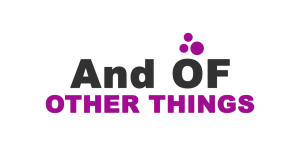Madagascar, one of Africa’s most strategically located island nations, is gaining attention as a rising hub for sustainable agriculture, textiles, and business process outsourcing (BPO). Its youthful workforce, competitive labor costs, and access to global trade routes create compelling opportunities for international employers. However, navigating its complex employment laws, social contributions, and administrative requirements can slow market entry. Partnering with an EOR Madagascar provider offers an efficient, compliant, and cost-effective way for global companies to hire local or remote talent—without establishing a legal entity.
Understanding the Employer of Record (EOR) Model
An Employer of Record (EOR) is a third-party organization that becomes the legal employer of a company’s workforce in a foreign country. The EOR manages all employment-related responsibilities—such as payroll, taxation, benefits, and compliance—while the client company retains operational control over the employee’s work.
An EOR in Madagascar typically handles:
- Drafting compliant employment contracts under Malagasy labor law
- Managing payroll, income tax, and social security contributions
- Handling employee benefits and insurance
- Supporting onboarding and terminations in compliance with local regulations
- Assisting with work permits and expatriate employee management
This model allows businesses to focus on strategy and performance while the EOR manages compliance with the Labour Code of Madagascar (Code du Travail, 2003).
Economic Overview: Why Madagascar Attracts Global Businesses
Madagascar’s economy has evolved steadily over the past decade, supported by exports, infrastructure investments, and foreign aid. It serves as a gateway between Africa and Asia, making it an emerging choice for investors seeking regional access and operational efficiency.
Key economic drivers include:
- Textile and apparel manufacturing: Madagascar remains one of Africa’s top apparel exporters under the African Growth and Opportunity Act (AGOA), supplying global brands.
- Agriculture: Vanilla, coffee, and cocoa dominate exports, with growing demand for certified and sustainable supply chains.
- Mining and natural resources: Nickel, cobalt, and ilmenite contribute to foreign investment inflows.
- Services sector: Rapid growth in BPO, IT support, and digital outsourcing is boosting employment.
- Strategic trade access: Proximity to major shipping routes enhances logistics for companies operating across the Indian Ocean.
For international employers, Madagascar offers access to a young, French- and English-speaking workforce—a strong advantage for multilingual business operations. However, hiring directly without understanding local labor and tax obligations can expose companies to compliance risks.
Employment Law in Madagascar
Madagascar’s labor system is governed by the Malagasy Labour Code, which provides a structured framework for employment relationships, emphasizing fairness and protection for both employers and employees.
Core provisions of Malagasy employment law include:
- Employment contracts:
All contracts must be written in French or Malagasy, outlining key terms such as remuneration, job title, and duration. Employment can be indefinite or fixed-term (up to two years, renewable once). - Probation period:
Typically up to six months for permanent employees and three months for fixed-term contracts. - Working hours:
The standard workweek is 40 hours, with a daily maximum of eight hours. - Overtime:
Overtime is limited to 20 hours per week and compensated at a premium—30% to 50% above regular pay, depending on duration and timing. - Leave entitlements:
-
- Annual leave: Employees earn 5 days of paid leave per month, equivalent to 30 days per year.
- Public holidays: Madagascar observes approximately 11 national holidays, including Independence Day (June 26).
- Sick leave: Granted upon presentation of a medical certificate.
- Maternity leave: Female employees receive 14 weeks of paid leave, with job protection upon return.
- Termination and severance:
Dismissal must be justified and follow due process. Notice periods range from 8 to 30 days, depending on tenure. In cases of redundancy, severance pay applies, calculated based on years of service. - Trade unions and collective bargaining:
Employees have the right to unionize and engage in collective agreements under the supervision of the Ministry of Labour.
An EOR Madagascar partner ensures that all contractual, payroll, and termination processes align with these statutory requirements—safeguarding both employee rights and employer compliance.
Payroll and Tax Compliance in Madagascar
Payroll in Madagascar involves managing multiple layers of statutory contributions and tax obligations. Miscalculations or delayed payments can lead to penalties, making compliance oversight essential.
Key payroll components include:
- Currency: Malagasy Ariary (MGA).
- Income tax: Madagascar applies a progressive income tax system ranging from 0% to 20%, depending on salary brackets.
- Social security: Employers and employees must register with the Caisse Nationale de Prévoyance Sociale (CNAPS) and the OSTIE (Organisme Sanitaire Inter-Entreprises).
- Employer contribution: Approximately 13% of gross salary (including CNAPS and OSTIE).
- Employee contribution: Around 1% to 5%, depending on salary and benefit type.
- Payroll frequency: Monthly, with payslips provided to each employee.
- Tax reporting: Employers must file monthly payroll tax declarations and submit annual summaries to the Direction Générale des Impôts (DGI).
An EOR Madagascar manages these obligations comprehensively—handling payroll processing, tax remittance, and social security filings—ensuring accuracy and timeliness.
Benefits of Partnering with an EOR in Madagascar
Collaborating with an Employer of Record offers significant strategic, financial, and operational benefits for international companies.
- Accelerated Market Entry
Establishing a local entity in Madagascar can take months due to administrative procedures. An EOR allows businesses to begin hiring and operating within 2–4 weeks, enabling faster project execution. - Legal and Regulatory Compliance
EOR providers continuously monitor updates to the Malagasy Labour Code, ensuring adherence to evolving employment, tax, and social welfare regulations. - Cost-Efficient Expansion
Without the need for entity setup, office registration, or in-country HR infrastructure, companies can significantly reduce administrative and overhead costs. - Simplified Payroll and Benefits Management
EORs centralize payroll operations, ensuring compliance with local tax laws while handling benefits, social contributions, and insurance. - Risk Mitigation
By assuming the legal role of employer, the EOR reduces risks related to misclassification, wrongful termination, or non-compliance with labor laws. - Workforce Flexibility
Businesses can hire full-time, part-time, or project-based employees quickly, adapting to changing project or operational needs. - Immigration and Expatriate Support
For international staff, EORs assist with work permits, visa processing, and local registration to ensure lawful employment.
EOR vs. PEO in Madagascar
While both Employer of Record (EOR) and Professional Employer Organization (PEO) models support HR functions, the distinction lies in legal accountability:
- EOR: Acts as the legal employer, ideal for companies without a registered entity in Madagascar.
- PEO: Operates under a co-employment model, suitable for companies that already have a local entity but seek to outsource HR functions.
For first-time entrants or project-based operations, the EOR model offers greater speed and compliance assurance.
Key Sectors Benefiting from EOR Services in Madagascar
EOR solutions are particularly advantageous in industries where agility and compliance are crucial:
- Textiles and Manufacturing: Managing skilled and semi-skilled labor for export-oriented production.
- Agriculture and Agribusiness: Complying with labor-intensive operations across rural areas.
- Mining and Energy: Hiring local specialists and technicians for extraction and infrastructure projects.
- BPO and IT Services: Expanding multilingual remote teams for global clients.
- NGOs and Development Programs: Employing local staff for humanitarian and sustainability initiatives.
Choosing the Right EOR Partner in Madagascar
Selecting a reliable EOR provider ensures seamless compliance and operational success. Businesses should evaluate providers based on:
- Proven experience in Malagasy employment law and tax administration
- Transparent fee structures and detailed service agreements
- Local presence and partnerships with labor and tax authorities
- Scalable HR and payroll technology platforms
- Capability to manage both local and expatriate employees
A trusted partner ensures smooth operations and minimizes regulatory and administrative risks in a rapidly evolving environment.
Conclusion
Madagascar presents strong potential for organizations seeking growth opportunities in the Indian Ocean region. However, managing compliance, payroll, and employment obligations can be challenging without local expertise. Partnering with an EOR Madagascar provider offers a compliant, agile, and cost-effective solution for hiring and managing talent—allowing companies to focus on strategy and expansion rather than administrative complexity. For global employers seeking long-term presence or project-based engagement, the EOR model provides the most efficient pathway to success in Madagascar’s dynamic business landscape.





